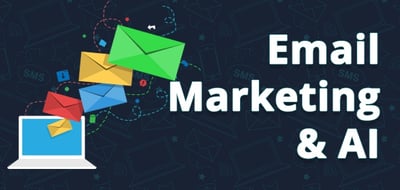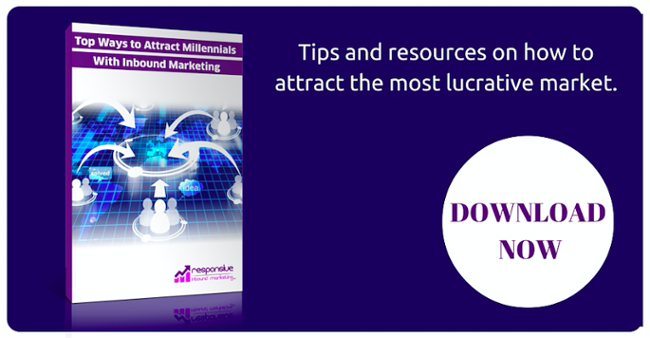Artificial Intelligence may seem like the technology of the future, but the truth is it’s being used now, and implementation is only going to grow. 53% of marketers plan to adopt artificial intelligence in two years, reports Forbes. When it comes it email marketing, AI is a tool that enables marketers to provide something that customers are looking for: a personalized experience. 
Email is still an important channel for marketing, and worth the investment, bringing in an average ROI of $38 for every $1 spent, according to the DMA National Client Email Report. People’s inboxes are already overflowing with messages, most of which they find irrelevant and not interesting. In fact, 40% of consumers say that the promotions they get aren’t interesting to them.
To break through all of this noise and keep your emails from getting deleted, or worse marked as spam, you need to send highly customized and relevant messages to your customers and leads.
The AI market is expected to grow at a compound annual growth rate of 62.9%, and be worth more than $16 billion in 2022, according to Research and Markets. As AI continues to grow and develop, we will see applications across industries.
What Does AI Mean For Marketing?
Besides having the potential to disrupt the future of the workplace, AI may also be a marketer’s new best friend. AI can interpret massive amounts of data and provide insights into customer behavior, including their wants and needs.
However, data does need to be collected and organized so that AI can use it. If you want to be competitive in the future, start building up your data collection strategy now so that it can further fuel your marketing efforts.
[DOWNLOAD]

Something you may not realize is that you might already be using AI with your email marketing. When you set up behavior triggered emails or use chatbots to respond to customer questions, that is fueled by AI.
Another example of this technology is with send-time optimization, which uses analytics to determine the best time for each individual person to receive your email. This is technically a machine-learning tool because it is focused on a specific result, but this type of application demonstrates the direction we’re heading towards. In fact, these tools are already available to businesses. IBM’s Watson and Salesforce’s Einstein are examples of artificial intelligence that don’t require any human input to find the results or insights you’re looking for.
With this new technology, marketers will be able to provide an experience that is completely unique and tailored to the preferences of each person. The buyer’s journey will be based solely on the individual.
The Power Of Data
“Having organized and integrated data will set you apart from your competitors and prepare you to take advantage of AI's predictive potential,” writes Marketing Profs.
This predictive ability can be used to see signs that indicate intent to purchase, in a much more accurate way than we can determine now, and use that information to send out automated emails or offers.
Hypertargeting
This takes segmentation to a whole new level. Hypertargeting will use the data gathered about a potential customer to find the messaging and content that will best speak to them based on context. Think of it as an amped up version of dynamic or “smart” content.
Manage Customer Conversations
Artificial intelligence is changing how conversations with customers are managed, and customers are able to do more through self service. Chatbots can be used to track customer behavior and gather data, send relevant messages, complete purchases, and provide immediate engagement so a customer doesn’t have to wait for a response to a question.
Implications For Email Marketing:
- Behavior triggered emails (tracking more subtle indications than we can now)
- Customized content and messages for each individual
- Optimized subject lines
- Analytics and insights into customer wants and needs
- Offers generated based on context and customer behavior
So if you haven’t already, start investing in big data, and pay attention to new artificial intelligence applications and developments. See how other people are using it for inspiration, after all, using your competitors to grow is the smart thing to do. Now is the time to start embracing this technology and looking for ways to make it part of your email marketing strategy.
